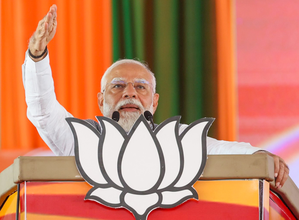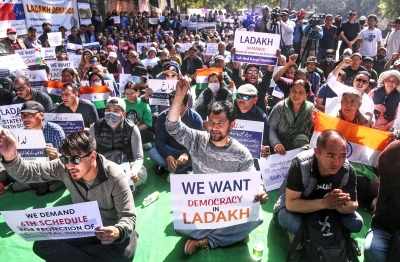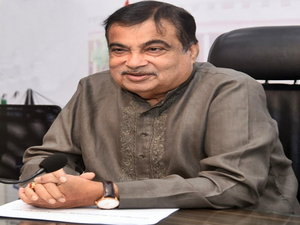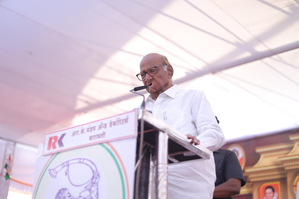IANS Analysis: Purges in China under Xi Jinping
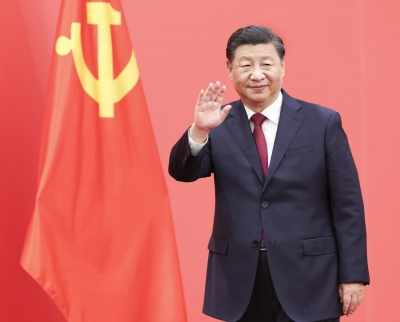
New Delhi: Two months ago, President Xi Jinping dismissed two former Chinese defence ministers, marking one of the most significant purges during his tenure.
Li Shangfu, a former close aide to Xi Jinping, and his predecessor Wei Fenghe were both expelled from the Communist Party of China due to allegations of corruption.
Over the past 12 years, such purges have become increasingly common in Chinese political life. They serve multiple purposes, including addressing the pervasive corruption undermining Chinese institutions; however, their primary function is to signal to other officials that similar consequences could befall them should they act in ways that displease Xi Jinping.
It is important to note that purges are a fundamental strategy employed by leaders of Communist totalitarian regimes.
Prior to Xi Jinping, Joseph Stalin had perfected the technique of eliminating officials perceived as threats to his authority.
Similarly, China has a longstanding tradition of purges, notably under Mao Zedong, with Deng Xiaoping being one of the most significant figures to be ousted during that era. Deng later ascended to the position of General Secretary of the Communist Party of China (CPC) and amended its constitution to limit the presidency and general secretary to two terms.
In contrast, Xi Jinping has altered this rule, reflecting the numerous changes that have occurred in China over the past decade. To fully grasp the implications of purges, it is essential to identify the prominent individuals who have been adversely affected by these actions.
Whom Xi Jinping purges
To comprehend the individuals targeted by Xi Jinping’s purges, it is essential to examine the CPC’s recruitment and training mechanisms. The party systematically cultivates its future leaders, politicians, and bureaucrats from a young age, drawing heavily from Confucian principles.
These trainees often come from families with deep Communist roots, with many being third-generation members whose fathers and grandfathers were active in the party. Xi Jinping himself is no exception, as his father, Xi Zhongxun, was unjustly purged by Mao for 16 years, forcing Xi Jinping to spend his childhood in relative obscurity for someone of his stature.
Notably, he did not attend the elite schools operated by the CPC. This background likely contributes to his distrust of those who held power before his tenure and his desire to surround himself with loyal supporters. To consolidate his authority fully, Xi Jinping has found it necessary to place his allies in key decision-making positions.
Purging other officials on various criminal charges has proven an effective means of creating vacancies and opportunities for his loyalists to ascend.
By taking these actions, Xi Jinping has effectively suppressed any potential opposition or dissent within the CPC, resulting in the removal of several notable figures. One such individual was Bo Xilai, who was once regarded as one of China’s most promising politicians before his abrupt downfall.
At 64 years of age, Bo served as the Party Secretary of Chongqing and was a member of the Politburo. He faced serious allegations, including corruption, abuse of power, and complicity in the murder of British businessman Neil Heywood by his wife, Gu Kailai.
In 2013, Bo was sentenced to life imprisonment, marking one of the most sensational political scandals in recent Chinese history.
Another significant figure was Zhou Yongkang, previously considered one of the most powerful individuals in China. As a former member of the Politburo Standing Committee and Secretary of the Central Political and Legal Affairs Commission, Zhou was convicted in 2015 for bribery, abuse of power, and leaking state secrets.
His trial was unprecedented, as it was the first time a former member of the Politburo Standing Committee had been prosecuted in the history of the People’s Republic of China. Zhou also received a life sentence, further illustrating Xi Jinping’s strategy of consolidating power by eliminating potential rivals and dissenters within the party.
Similarly, numerous CPC officials, including Ling Jihua, a close associate of former President Hu Jintao, Xu Caihou, the former Vice Chairman of the Central Military Commission, and Sun Zhengcai, a Politburo member once regarded as a potential future leader of China, have been sentenced to lengthy prison terms under Xi Jinping’s regime.
In addition to these high-profile cases, Xi Jinping has also targeted prominent figures from various sectors, including actors, industry leaders, and mid to senior-level military officials, who have faced purges during his administration.
What objectives purges serve
For Xi Jinping, the primary objective of purging senior officials and rivals is to eliminate any obstacles to his authority. However, the recent expulsion of loyalists, such as the former Defence Minister, indicates a shift in his strategy.
These purges are advantageous for both Xi Jinping and the CPC, as they hold individuals accountable for their transgressions. Furthermore, such actions serve a populist function; when wealthy Chinese figures are removed, the public often perceives it as a form of justice being enacted by the authorities.
Prior to Xi Jinping’s leadership, the CPC was regarded as an untouchable entity in Chinese politics. Xi Jinping has effectively embodied the party, viewing rivals who could otherwise contribute with equal loyalty as threats that must be eradicated.
Nonetheless, a critical question arises: In a system centred around a single individual, how can these purges be rationalised as a pursuit of justice? There may come a time when the discontent stemming from these purges among CPC officials leads to Xi Jinping’s downfall, particularly as the fragile state of the Chinese economy exacerbates this crisis.
(Lt Col JS Sodhi, Retd, is the Editor of Global Strategic & Defence News, and the author of ‘China’s War Clouds: The Great Chinese Checkmate’. The views expressed are personal)
–IANS
arm/

